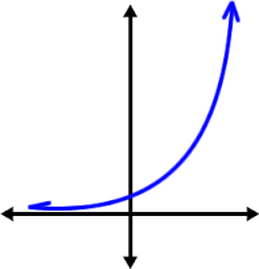|
As Brookside Church continues our 365 Series to read through the Bible in 2016, the Brookside Institute will keep thinking about how we can line up with that (awesome) goal and come alongside it in the ways we can. One way this can take shape is for us to highlight certain books on this site that can help people better understand - and more deeply appreciate - things we're reading as we track through the Bible.
First, an important note: At Brookside, we always want people to be reading the Bible first and most. "Extra reading" should never distract us from reading God's Word. (Let me say it directly: If you don't have time to read the Bible AND other Christian books, put the other books down and use your time to read the Bible closely.) The best sort of extra Christian reading is books that push us into THE BOOK (the Bible) and help us better understand and appreciate its message. Now with that said, let's acknowledge the fact the other books CAN INDEED help push us into the Bible, and better understand and appreciate everything it says. This has proven true in my own life, and I talk with people often who have been greatly aided in their understanding of God and His Word by something they read in a solid Christian book. All of that is important stuff to agree on as we proceed. And now with this understanding, let me identify three books that can help you dig more deeply into the Old Testament - in terms of both understanding and appreciation. I was talking with my dad this last week (he's also tracking along with 365) and he mentioned two of these and brought them to the forefront of my attention again. He talked 'em up enough I figured I'd better give them a shout out here! (Thanks, Dad!) The third book is a bit more technical and academic than the other two, but that doesn't mean its not helpful and really worthwhile. Its depth helps us appreciate the value and meaning of the Old Testament in some very important ways. Here they are - 3 books that can help you dig more deeply into the Old Testament. (Click on either the titles or images below and you'll be taken to the Amazon pages where you can learn more.)
1 Comment
Every now and then, I get the chance to explain what I do as the "Director of the Brookside Institute" at Brookside Church. When most people hear this title, their mind goes to "Adult Sunday School," and I get that. Classes are part of what we do. (However, in my experience "Adult Sunday School" classes are often heavy with stereotypes that I often want to work against — think unprepared teachers, mediocre content and presentation, and lots of people hanging out drinking stale coffee.)
But classes only capture part of what the Institute does to build and reinforce foundations of the Christian faith. (Along with everything else other Brookside ministries do to equip the church and lead people into a growing relationship with Jesus Christ!) Therefore, when I explain the Brookside Institute to people, I try to zoom out a bit and give people a picture of ALL of the innovative ways the Institute is laying foundations and equipping the church in the areas of biblical literacy and theological formation, for the purpose of living on mission. For people at Brookside, this helps them connect the dots a bit, and see the intentionality we're trying to bring to this important "equipping arm" of the church. For people outside of Brookside — perhaps ministry leaders in other churches, for example — I hope this gives them a vision for creatively multiplying important "equipping/adult Christian Education touchpoints" in their own local churches. So how do we multiply touchpoints for this sort of biblical and theological equipping in the Institute? Here's a "zoomed out" view of a lot of what we currently offer: Author's note: This is a revised and updated version of a post I initially wrote here. I love encouraging people to read the Bible - to discover the "living and active" Word of God (Hebrews 4:12), and that all Scripture - both the Old Testament and the New Testament - is given to us by God and is useful for teaching us, correcting us, rebuking us, and training us to we're equipped for every good work (2 Timothy 3:16-17).
But I also know that people want and need help reading through and understanding the Bible. I know this because people often approach me and other pastors I know wanting this sort of help. To someone with no foundation for knowing how to read and approach Scripture, a whole lot of the Bible can feel big and foreign and weird. The Bible can feel like a maze. (And, to be honest, parts of the Bible can continue to feel that way - even for people who have been reading it for a long time!) As I encourage people to read through the Bible, then, I also want to help them lay a foundation on which they can read the Bible well. I've posted before on some "big idea" principles that can help people do this. And this is why I'm such a big fan of the Institute class on "Bible Basics: An Important Class about God's Word." Since a lot of people want some help understanding the Bible, and since they're going to go somewhere to try and get their questions answered, I've also found it useful to have a handful of websites that I can point people towards, that will steer people in a right direction as they understand and apply the Bible. Here are six sites that I often point people towards first: In 2016, Brookside Church is reading through the Bible - we're calling the series "365" to encourage people to spend time DAILY reading through a guided Scripture plan. (You can find out a lot more about what we're doing here.) And since the Brookside Institute is all about championing biblical literacy (along with theological formation, for the purpose of living on mission), I love pointing people towards this 365 Series and considering how the Institute can align with things over the course of the year. All this is why I'm so excited about how the Institute will be "leaning in" to the 365 Series throughout 2016. Throughout the year, we'll be creating resources and offering "one and done" seminars designed to help people move into and through the Bible as they track along with the 365 reading guide. Be sure and access what we've already done - and stay aware of what's coming - by tracking along here. (And check back periodically, as things will continue to develop as the year goes on.) And the Brookside INstitute needs your help as we do this!Specifically, we'd love to hear from YOU as we prayerfully and thoughtfully consider which topics to address through resources we produce and seminars we offer. Here are some things you can get back to us about:
Even if your question feels "broad" to you or you don't feel like you can quite word it perfectly, please don't let that keep you from submitting questions, thoughts, and ideas that can help us offer resources and seminars that (at least kinda) get at the things that would help you out. So bring it on and help us out. You can submit ideas/thoughts/questions in the comments section below, or feel free to email me directly at [email protected] and submit them that way, if you'd prefer a greater level of anonymity. (No questions will be tied back to the "author" of the question in any public environment.) By way of disclaimer: You probably already know this, but please understand that time and focus constraints may keep us from answering every question (either by way of resource or seminar). I look forward to hearing from you!
Pastor and author A.W. Tozer is famous for saying that "What comes to our minds when we think about God is the most important thing about us."
I, for one, happen to think Tozer is on to something with this statement. And so part of my goal - both as a Christian disciple and as someone who teaches a fair amount of Bible & theology - is to build a strong foundation around a biblical view of God AND continually be returning to and reinforcing a robust, "big," and accurate picture of who God reveals Himself to be. And that means I love it when authors, pastors, and teachers help bring various truths about God to life in fresh, vivid ways. Recently J.D. Greear helped do this for me, bringing God's ability and His generosity together in some cool ways. Check out this quote, from Greear's Gaining by Losing: Why the Future Belongs to Churches that Send (Zondervan, 2015), p. 187: Recently, I ran across this article by Todd Wilson, Senior Pastor of Calvary Memorial Church in IL and co-founder of the Center for Pastor Theologians. (He's also co-author of the recent book, The Pastor Theologian, which I've previously reviewed here.) I love hearing people articulate a passion and vision for biblical & theological equipping in the church and for the church - because of how closely this aligns with what we're trying to do with the Brookside Institute.
Of course, Dr. Wilson isn't talking specifically about the Brookside Institute. Don't expect 100% overlap between all that he mentions and everything we do here. There are certain things he brings up and draws attention to that I would nuance a bit, and/or things he mentions that we've chosen not to do at the Brookside Institute. But there's still A LOT of overlap. The whole article is worthwhile - I encourage you to read it when you've got a few minutes. For now, let me simply piggy back on what Todd says by adding my hearty (and brief!) "Amen" to three things mentioned about (1) the necessary connection between "doing theology" and "doing ministry," (2) clarifying the role of the pastor theologian, and (3) making local churches places where theology thrives and feeds. A few weeks ago, my oldest son got a 3D Wooden Puzzle called the "Prisoner's Ball" - check out the pictures at the top of this post to see what it looks like. The goal is to disassemble the interlocking wooden pieces in such a way that the ball in the center can be freed.
My oldest son worked diligently on it for quite a while (he's usually pretty good at these sorts of things), but with no luck. Then I tried my hand at it for longer than I'd care to admit - also with no luck. Even with devoted attention and lots of effort, we didn't unlock the puzzle. It was kinda confusing, discouraging, and frustrating. A couple of weeks later, I ended up "cheating" and searching for clues on YouTube (insert simultaneous smile and *head of shame* here - ha!). (Spoiler alert: Here's the video.) In about 5 minutes, the guy on the video explained how to work through the puzzle in such a way that the ball could be released. The puzzle that was initially disorienting and discouraging became doable. In my experience reading through Leviticus and talking with many others reading through it as well, I wonder if our reading of Leviticus can often feel like my attempts at figuring out the Prisoner's Ball Puzzle. We apply attention and spend our effort, but we end up confused, frustrated, and discouraged. But let's not resign ourselves to feelings of defeat, or feel like we need to forecast "trigger warnings" every time we talk about Leviticus or begin reading it ourselves! While there is much in this book that can be disorienting to 21st century American readers, that's doesn't mean we should avoid the book. After all, this book is part of God's inspired Word, the Bible! The message of Leviticus would have been something Jesus meditated upon as an observant Jew. And Leviticus is certainly included in the "all Scripture" that is inspired by God that Paul mentions in 2 Timothy 3:16-17 - "all Scripture" (including Leviticus!) that is useful for "teaching, rebuking, correcting and training in righteousness, so that the servant of God may be thoroughly equipped for every good work." Just like a few tips helped me figure out the Prisoner's Ball Puzzle, so too a few tips can helps us move into and through Leviticus in such a way that we understand and appreciate its message (and live accordingly) - even if parts of it still sound foreign and stretch our understanding. With all that said, then, let's briefly introduce ourselves to a few important tips that can help you move into and through Leviticus in a right way: |
Tim WiebeChristian. Husband. Father. Pastor. Learner. Contributor. Reader. Categories
All
Archives
June 2024
|
© 2014-2024 | 11607 M Circle, Omaha NE, 68137 | www.thebrooksideinstitute.net










 RSS Feed
RSS Feed
